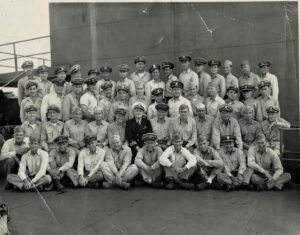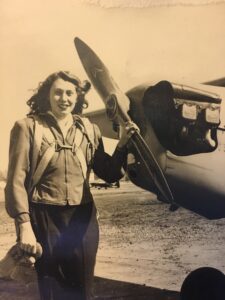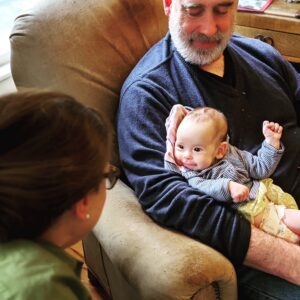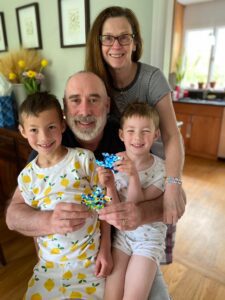I first experienced double vision in 2019 during an intensely stressful period at work around the holidays. I had a weird virus of some kind (back when the term virus…
I first experienced double vision in 2019 during an intensely stressful period at work around the holidays.
I had a weird virus of some kind (back when the term virus had far tamer connotations than today), and my entire body broke out in a horrible itchy rash. Days later, while driving, I saw with alarm that the sidewalk on the right side of the road was now at an angle across the middle of the road. An eye specialist soon found the culprit: the 6th cranial nerve behind my left eye had gone on vacation, perhaps because of the virus. This particular nerve is in charge of the lateral movement of the eye, so while I had—and still have—two perfectly healthy eyes, they don’t look in the same direction. My primary doctor emailed nonchalantly, “We rarely know what causes it, and it usually goes away.”
He was right. While I was deeply alarmed that my vision had gone to hell, within about three months I was fully back to normal. I thought all that was behind me.
I was wrong.
On a sunny September day a few weeks ago I started seeing double again. The angle of the roadway was all off, and with the Picasso-like modernism of my multiple vision came a sudden torrent of sheer panic. I put on my reading glasses and looked at my computer screen, and there, too, was double vision. Doing my work as a writer was doubly hard if not impossible. Worst of all, the bizarre vision made me dizzy and nauseous.
My eye doctor confirmed that my 6th cranial nerve was not working properly. And this time I am being referred to a neurologist. In the absence of high blood pressure or diabetes, both of which can cause sudden vision changes, I did not fit the profile of those with double vision.
Doctors are by nature wary of telling patients all the things that can actually be wrong.
They don’t want us to freak out. That’s what the Internet is for. The WebMD site indicates that the 6th cranial nerve can have problems due to things like a brain tumor, stroke, or MS. Of course, the site also explained, it usually goes away within a few months. The neurologist will no doubt have me get a brain scan to check for these things.
And in the meantime, life goes on. I see my body as a ship carrying me through time and space. At any given moment there might be one or more things wrong (a sore tendon in my foot, for example). Like Scotty on Star Trek, I’m dispatched to fix the problem, and I’m usually pleased to report back—in a Scottish brogue—that it won’t be easy but it will get done. It has to.
So the repairs keep happening while I’m hurtling at warp speed through life, working with clients, spending time with my wife and (most important for both of us) being with our four grandchildren.
Fear stalks anyone who hears the word “brain tumor.” But, I’ve told myself, this is what we all sign up for when we are born.
Our little newborn baby hands are too small to hold the pen on the contract that must be initialed as soon as we emerge from the womb, but the contract is binding nevertheless. It states unequivocally that we must accept with grace the good and the bad, the joy and the pain, the love and heartache.
I have a friend who lost a young son to a brain tumor. It was and is horribly sad. He was far too young to be taken from this world. I, on the other hand, am 62. If my number is up (and to be clear, I don’t believe it is), I can have no complaints. How many men get to enjoy being with not just one, but four grandchildren? As my dad used to say, “This is all grace.” There is no alternative to keeping calm and carrying on.
And so it was that within days of meeting with the eye specialist I found myself at fabled Walden Pond in Concord, Massachusetts.
I started a regimen back in the spring that entailed mile-long swims four or five days a week. Thanks to swimming and dietary changes I have lost twenty-five pounds since June, and I wasn’t about to stop for anything.
The air was cool—about 60 degrees—the leafy trees along the water’s edge were just beginning to turn red, yellow and orange. I took off the glasses I use that blocks the vision of my left eye so I can see straight with my right eye, and put on my swimming goggles.
Goggles themselves are rarely clear, so putting them on and seeing the familiar blur of the water-splotched plastic lenses was calming, like a visual white noise that partly obscured the reality of my double vision. I jumped forward into the cold water and swam hard and fast, thrusting my arms forward and back, the shock of the cold gradually easing as the exercise warmed me and the waters washed over and around and under me, propelled forward with the knowledge of my potential doom chasing behind, or perhaps it was simply the joy of being in my element again, doing something regular and healthy in defiance of my dysfunctional cranial nerve and the fear of the insidious brain tumor strangling it unseen inside by skull.
My hands pounded in the water, pulling back again and again until I needed a rest, and there in the center of the one-mile long pond I switched from the crawl stroke to the less strenuous sidestroke. Doing the sidestroke, you float on your side, one eye in the water, the other above, coordinating arms reaching and pulling while scissoring the legs.
On my side, the edge of the pond came into starker view.
A painting of fall leaves seen laterally, with the blue sky above and the dark pond below. And with my cranial nerve on sabbatical, the scene was repeated one over the other.
Henry David Thoreau famously spent a year camped beside the pond when writing his seminal work, Walden. As he once wrote in his journal, “The question is not what you look at, but what you see.”
There in my double pond on that day, I saw my life.
Not a “life flashing before your eyes” vision but more of a meditation on this whole experience. I think if Thoreau were alive today he’d be one of the people on the beach with his iPhone turned off, or better yet left in the car. When we are really alone with our uninterrupted thoughts we see more clearly. The noise of everyday life is a distraction. Seeing a double shoreline, I knew then, was weird but ok at the same time. I told God that if this is what he wanted me to experience, I was “all in.” I would see both shores and their myriad fall colors. Because accepting whatever comes and letting it flow through my body and mind like the cool waters around me was a way to acknowledge that the pain and anxiety and beauty were inseparable and inevitable.
It’s the contrast between the dark sadness and vivid, beautiful happiness that makes all the good things in life so much better.
Intermingled with my prayer, I saw a memory (captured in my mind like a perfect photo) of my two grandsons, age 7 and 5, running across the beach at our place in Vermont. In the background was the deep blue lake and evergreen mountains, and the boys were looking up excitedly at the sky because an eagle was there not more than fifty yards overhead flying north, and they shouted “the eagle!”
In that memory was the awareness that life is just as finite as this second. The perfect alignment of eagle, grandsons, a glorious summer day. Here, now.
Chances are, the neurologist will find nothing alarming in my brain scan. My 6th cranial nerve will tire of its extended vacation and come back to work with renewed vigor. My perfect vision will return. Or it might return for the most part but I’ll need to wear glasses like most people.
But no matter what happens, I hope I can learn from Mr. Thoreau. I’ll keep swimming right up until the pond freezes over (I have a wetsuit, after all). And if I learn very well, then I will know that it’s not about what I look at that matters, but what I really and truly see.








